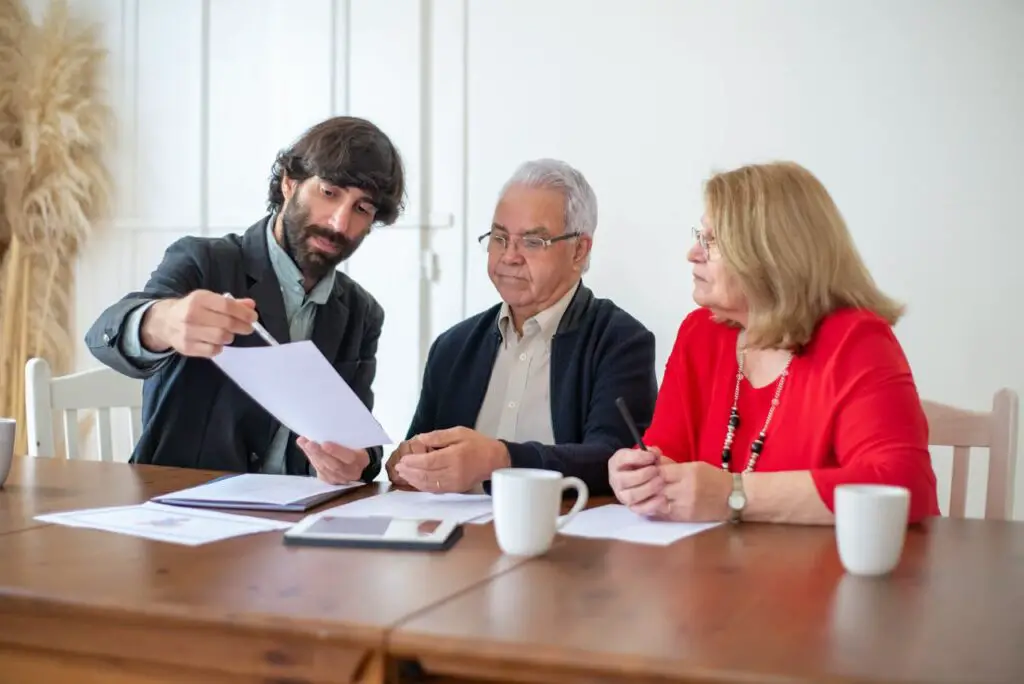Secure Your Legacy: 10 Estate Planning Tips for Boomers

If you’re a baby boomer, chances are you’ve worked hard for decades to build a life you’re proud of—raising a family, building a career, paying off a home, and saving for retirement. But now comes one of the most important tasks of all: making sure your legacy is secure. Estate planning isn’t just about dividing assets; it’s about ensuring your wishes are honored, your loved ones are protected, and your hard-earned wealth doesn’t get lost in legal red tape or family disputes.
Think of it this way: estate planning is your final love letter to your family. It says, “I’ve got you covered, even when I’m not here.” Whether you want to leave your children a financial cushion, gift money to your grandkids, or support a cause close to your heart, having a plan in place makes all the difference. Here are 10 practical estate planning tips every boomer should know to create peace of mind for themselves and their families.
1. Rewrite or Create a Will

If you don’t have a will yet, consider this your sign to finally get one. And if you wrote a will years ago, it may be time for an update. Life changes—marriages, divorces, new grandchildren, or even a move to another state—can make an old will outdated and risky. Without a valid will, the courts decide who gets what, and that rarely matches what you would have wanted. Having a current will in place gives you control, prevents conflict, and ensures your wishes are honored.
2. Use Trusts for Smooth Transfers and Probate Avoidance

Trusts are one of the most powerful tools in estate planning. A living trust allows your estate to bypass the often lengthy and expensive probate process, which means your heirs receive their inheritance faster and with fewer headaches. Irrevocable trusts can also help reduce estate taxes and protect your assets from creditors. While setting up a trust might sound complicated, it is often simpler than you think and well worth the peace of mind it provides.
3. Update Beneficiary Designations Regularly

You may be surprised to learn that what you list on retirement accounts, pensions, or life insurance policies actually overrides what your will says. That’s why keeping your beneficiary designations current is crucial. An outdated designation could accidentally leave assets to an ex-spouse or exclude a new grandchild. Review your accounts at least once a year and add contingent beneficiaries as a backup to ensure your money goes exactly where you want it to.
4. Establish Advance Medical Directives and Powers of Attorney

It is not the most pleasant topic, but planning for possible incapacity is just as important as planning for after you are gone. Advance medical directives and powers of attorney give someone you trust the legal authority to make healthcare and financial decisions on your behalf if you become unable to do so. Without these documents, your loved ones could end up in stressful, time-consuming court proceedings just to manage your care or finances. Setting them up now ensures your wishes are clear and carried out.
5. Consolidate and Simplify Your Finances

Imagine your loved ones sifting through years of bank statements, online accounts, and mystery folders when you are no longer around. Not exactly the farewell gift you want to leave behind. Consolidating your financial accounts and keeping a master list of account details, passwords, and important documents makes the transition so much smoother for your family. Simplifying now means less stress for them later and fewer chances of something valuable slipping through the cracks.
6. Communicate—Don’t Surprise Your Family

Surprises are fun at birthday parties, not in estate planning. If your children or heirs have no idea what your plans are, they may end up confused, disappointed, or even resentful later. Having open conversations about your estate plan helps set expectations and reduces the risk of disputes. Explain your decisions so they understand the “why” behind them, even if they don’t necessarily agree. It may feel a little uncomfortable at first, but a heart-to-heart today can prevent heartache tomorrow.
7. Use Gifting and Tax-Smart Strategies Now

Here is a little-known fact: you can reduce future estate taxes by giving some of your assets away now. The IRS allows you to gift up to a set amount each year to as many people as you like without paying gift tax. These annual gifts not only lower the size of your taxable estate but also let you see your loved ones enjoy your generosity while you are still here. If you have significant assets, talk with a financial advisor about more advanced strategies to take advantage of today’s tax laws before they change.
8. Include Charitable Giving if It Matters to You

Many boomers feel strongly about leaving a positive mark beyond their families. Including charitable gifts in your estate plan is a wonderful way to make a lasting impact. Whether you leave a percentage of your estate to a favorite charity, create a charitable trust, or simply set aside a specific amount, your generosity can continue to support causes close to your heart long after you are gone. Bonus: charitable giving often comes with tax benefits that help maximize what you leave behind.
9. Plan for Real Estate and Property Transition

Real estate is often one of the most valuable and emotionally significant assets in an estate. If you own a home, vacation property, or land, think carefully about what you want to happen to it. Do you want it sold, passed on to children, or kept in the family for generations? Without clear instructions, heirs may face conflicts about upkeep, taxes, or whether to sell. Planning ahead by specifying your wishes or setting up a trust for property management helps ensure your real estate passes smoothly and with less stress.
10. Review and Update Regularly

An estate plan is not a one-and-done project. Life changes, tax laws shift, and family dynamics evolve. That’s why it is important to review your estate plan every couple of years—or sooner if you experience a major life event like a marriage, divorce, or the birth of a grandchild. Keeping your plan updated ensures it continues to reflect your current wishes and protects your loved ones from unexpected complications. A regular check-in with your attorney or financial advisor can make all the difference.
Final Thoughts

At the end of the day, estate planning is not about how much money you leave behind—it is about the clarity, comfort, and security you provide for the people you love. By putting a thoughtful plan in place, you take away the guesswork, ease the emotional burden on your family, and ensure that the legacy you built with hard work and care lives on exactly the way you intended.
So, Boomers, consider this a gentle nudge: do not wait until tomorrow to start. Your future self—and your family—will thank you for taking the time today to protect your legacy and secure peace of mind for everyone you love.
Leave a Reply